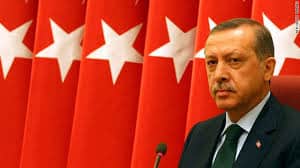Turkey’s peace process with the PKK (Kurdistan Workers’ Party) began in the first three months of 2013, after nearly four decades of struggle in which an estimated 40,000 lives were lost. It ended, finally, when President Recep Tayyip Erdogan formally declared it dead...

How Did the Turkish Peace Process Collapse?
read more
